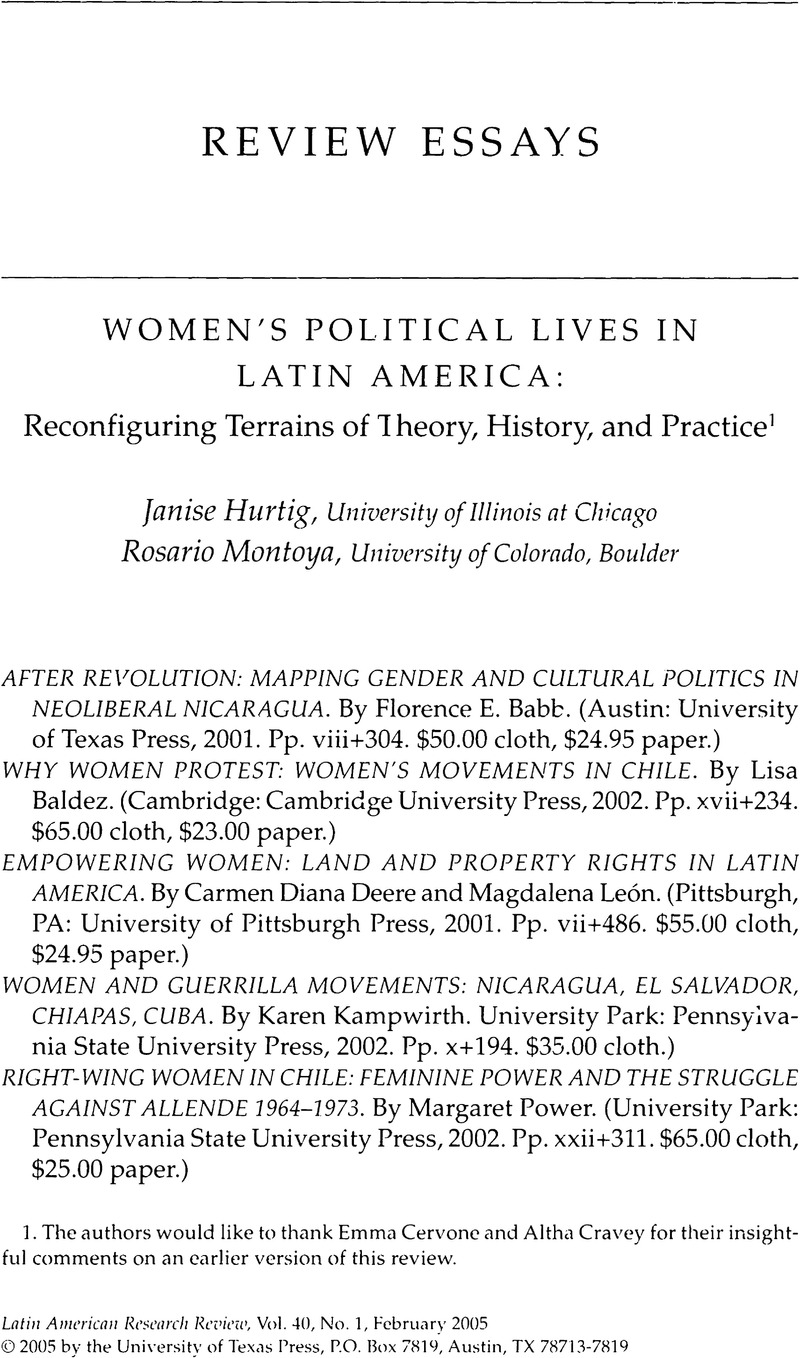No CrossRef data available.
Article contents
Women's Political Lives in Latin America: Reconfiguring Terrains of Theory, History, and Practice
Review products
Published online by Cambridge University Press: 05 October 2022
Abstract

- Type
- Review Essays
- Information
- Copyright
- Copyright © 2005 by the University of Texas Press
Footnotes
The authors would like to thank Emma Cervone and Altha Cravey for their insightful comments on an earlier version of this review.
References
2. Mary Weismantel, “Feminist Historical Materialism Revisited.” Paper presented at the American Anthropological Association Annual Meetings, New Orleans, 2002.
3. Elizabeth Dore, “Introduction: Controversies in Gender Politics” in Gender Politics in Latin America: Debates in Theory and Practice (New York: Monthly Review Press, 1997) 9–17. See also Susan Tiano's review essay, “From Victims to Agents: A New Generation of Literature on Women in Latin America,” in Latin American Research Review 36 (3): 183–203 (2001).
4. The slippage between the “everyday” and the “domestic sphere” in much feminist research is indicative of the extent to which notions of women's social location continue to be theorized from an androcentric perspective.
5. Rosario Montoya, “Women's Sexuality, Knowledge, and Agency in Rural Nicaragua,” in Gender's Place: Feminist Anthropologies of Latin America, eds. Rosario Montoya, Lessie Joe Frazier, and Janise Hurtig (New York: Palgrave, 2002).
6. June Nash, “A Decade of Research on Gender in Latin America,” in Women and Social Change in Latin America, eds. June Nash and Helen Safa (Hadley: Westview Press, 1986). That this is a central concern of recent volumes such as Cultures of Politics, Politics of Culture, eds. Sonia Alvarez, Evelina Dagnino and Arturo Escobar (Boulder: Westview Press, 1998), attests to the continuing relevance of this issue.
7. Janise Hurtig, Rosario Montoya, and Lessie Jo Frazier, “Introduction: A Desalambrar: Unfencing Gender's Place in Research on Latin America,” in Gender's Place, Rosario Montoya et al. (eds.), 7.




